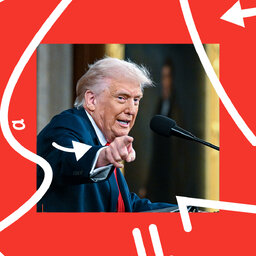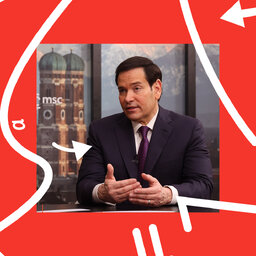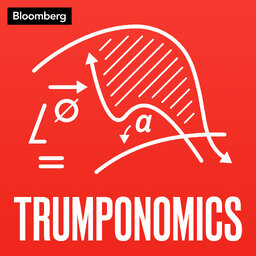A network of dictators from China to Venezuela could be the beneficiaries of a welcoming White House should Donald Trump win the US election come November. That’s according to journalist and historian Anne Applebaum, who warns that the self-proclaimed dealmaker and convicted felon’s foreign policy may be more personal and even less predictable in a second term. Applebaum joins Voternomics host Stephanie Flanders to discuss her latest book Autocracy, Inc: The Dictators Who Want to Run The World.
In 1 playlist(s)
Trumponomics
Tariffs, crypto, deregulation, tax cuts, protectionism, are just some of the things back on the tabl…Social links
Follow podcast
Recent clips

Introducing: Bloomberg This Weekend
01:08

Trump’s Rosy Economic Message Faces a Reality Check
30:53

What Munich Means for the Shifting Global Order
28:47
 Trumponomics
Trumponomics